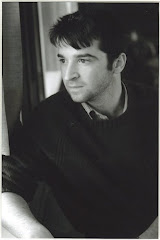There is a uniqueness of the "Youtube Era" and that is the creation of the "Youtube Election." Although, in truth they should be called the "Google Era" and the "Google Constituency." I guess I should briefly explain why I call it the "Google Constituency" and not, specifically not, the "Youtube Election." The reason is, that Youtube, while a substantial part, was merely one of many tools used to increase our communication and connectedness. Google, while only one tool as well, is a symbol of our ability to find information. As a search engine, one that works magnificently, it represents our ability to find what one said yesterday to check it against today. And while Youtube made those moments of hypocrisy and pandering real and vivid, there were many other forms of communication that played a role as well. Blogs acted as a running log of expectations, surprises, fears, hopes, and lies. Ads embedded at a website acted as a volunteer, registering voters, expressing a candidates message, and recruiting more volunteers. All this, and much more, combined with our ability to find this relevant information to create an impressive force of citizen power.
The "Google Constituency" brings with it, consequences that, in large part, protect and progress the integrity and sanctity of our electoral process.
The increase in communication and ease with which the individual can find information has had a specific effect on politicians (many of them) and the idea of political messaging. Whereas, in decades past, politicians had a clear incentive to say one thing to one group of people and something completely different to another, in the election of '08, anything you said could be easily uploaded and blogged. It became somewhat of a risk to pander.
And there was another, more unexpected, consequence. That consequence is the exact opposite of the "say one thing to one group and another to another" strategy. That is the political gain of saying the wrong thing to the wrong group of people intentionally, out of principal. President Barack Obama (then Senator Obama) spoke of carbon caps and energy efficiency in Detroit, and the importance of fatherhood at a mostly African American church. Both of these speeches could be seen as condecending, or could be taken that way by the members of the audience. A "Google Constituency" however, makes those local events a national occurrence. Therefore, while President Obama was speaking to a small group, the entire country was listening. While he may not have been in front of the choir, at least not for the specific issue he spoke of, the choir was still listening. And those that disagree with you tend to respect pandering less than saying something they disagree with, assuming they find out it was just pandering.
These events, these instances of saying the wrong thing to the wrong group of people intentionally, became a talking point for surrogates and volunteers to describe President Obama's courage and commitment to the issues he preached, preached even if the choir wasn't listening. This concept is entirely new to politics. The "Google Constituency" has allowed us to question all of the traditional thinkings on political strategies. Standard operating procedures now longer apply.
Subscribe to:
Post Comments (Atom)




.jpg)
No comments:
Post a Comment